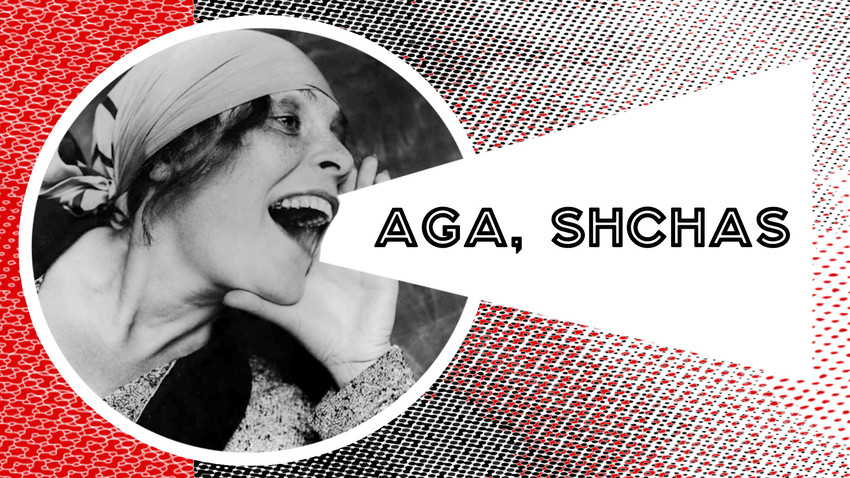5 interjections Russians couldn’t live a day without

1. Ага, щаз - Aga, shchas
The sarcastic phrase literally means “Aha, right away!”. For example when a person is asked to do something they really don’t want to do. They can even add “I am already running” (уже бегу -
Some people even add “
2. Да нет, наверное - Da net, navernoe
The phrase - literally meaning “yes, no, maybe” - is really trying to say “No, I guess.” Or “probably not, thanks.” The phrase expresses a certain level of doubt and hesitation that is very Russian: you’ve already said “no”, but you’re still unsure inside about how much stock you’re
In short, “da net,
3. Давай - Davai
Literally meaning “come on”, this is a truly multi-purpose phrase. You can often see a person talking on the phone and repeating ‘
“Davai” is an imperative form of the verb ‘to give’ - which allows it to be used suggestively for phrases like “Let’s go home” - Давай пойдем домой (Davai
4. Типа - Tipa
One of the main fillers in modern Russians speech is the phrase “kind of” or what the slang term “ish” means. Usually it’s used in informal speech and originally for comparison - ‘just like that’ (‘типа того’) - “
It’s also frequently used for
5. Блин - Blin
Literally meaning “pancake”, the word actually implies “sh*t!” or “crap!”, with the particular food indicating a connection to an even
When you’re hurting, when you’ve failed, when you’re incredibly surprised by a sports team’s sudden loss - it’s all “blin, blin, blin” or “
Let’s apply that knowledge in a complete sentence: “Blin! Kak
Read more: 10 untranslatable Russian phrases to show off your skills
If using any of Russia Beyond's content, partly or in full, always provide an active hyperlink to the original material.
Subscribe
to our newsletter!
Get the week's best stories straight to your inbox